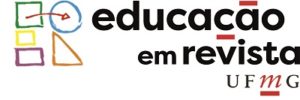Cíntia Maria de Araújo Pinho, teacher at the State Center of Technological Education Paula Souza, ETEC Prof. Maria Cristina Medeiros, São Paulo (SP), Brazil.
Marcos Antonio Gaspar, permanent faculty member and researcher at the Postgraduate Program in Informatics and Knowledge Management at Universidade Nove de Julho, São Paulo (SP), Brazil.
Renato José Sassi, permanent faculty member and researcher at the Postgraduate Program in Informatics and Knowledge Management at Universidade Nove de Julho, São Paulo (SP), Brazil.
The process of manually correcting essays is time-consuming and exhausting for the teacher, as well as delaying feedback to the student. The challenges of this task are particularly evident when correcting essays for the National High School Exam (Exame Nacional do Ensio Médio, ENEM), for example, where evading the proposed theme is one of the competencies analyzed. This specific competence is the focus of a study recently published in the journal Educação em Revista, entitled Application of artificial intelligence techniques for classification of escape from the topic in essays.
In this context, the study proposes the development of an automatic intelligent essay correction system as a solution to speed up the assessment process, providing the teacher with indications of possible flaws in the student’s writing, especially regarding deviation from the theme proposed in the essay. The solution outlined in this work is based on Artificial Intelligence, with the application of Natural Language Processing, Text Mining, and intelligent techniques for classifying the deviation from the theme in essays.
To this end, an applied and experimental study was carried out by applying algorithms and measuring the results obtained in the experiments developed, with the aim of establishing a comparative analysis of the application of different intelligent techniques.
The experiments carried out classified 1,320 essays in Portuguese with 119 different themes, which gave the best results for the Convolutional Neural Networks classifier. This classifier proved to be more efficient in terms of both accuracy and false positives, precision metrics, Recall and F1-Score.

Image: CRIA.
The research carried out led to the creation of a web platform called Corrector of Essays by Artificial Intelligence (Corretor de Redações por Inteligência Artificial, CRIA), which is already being used by schools, school managers, teachers, and students. The aim of this platform is to provide instant analysis of essays, simulating the ENEM guidelines and grades, indicating any deviations made in the text.
It is expected that the solution developed in this research will contribute to positively impacting the work of teachers and educational institutions, by reducing time and providing appropriate support for the essay assessment process. Moreover, the solution developed makes it possible to train and improve the quality of writing in essays, as well as providing more agile feedback to those involved in the teaching-learning process, i.e., teachers and students.
This work was analyzed under the principles of the open peer review process in the journal Educação em Revista. This provided a rich dialog between the authors, editors, and reviewers of the article. In this way, it was possible to understand the recommendations made by the reviewers, culminating in new ideas to strengthen the text and, above all, improve the presentation of the results and conclusions of the experimental research carried out.
The evaluative review of the manuscript, prepared by reviewer Eucidio Pimenta Arruda, with the title Generative artificial intelligence in the context of the transformation of teaching work, was published together with the article in volume 40 (2024) of Educação em Revista.
Educação em Revista Special Week
- Contributions of Educação em Revista for the advance of Open Science in Brazil
- Educação em Revista celebrates 39 years of publishing academic research: interview with the Editor
- Collective constructions: open peer review of an article on indigenous literature
- Pedagogical practices for student retention
- How do young people experience the democratization of access to higher education?
- Web platform can revolutionize the essay correction process
- The Open University of Brazil in the management of student permanence in Pedagogy courses
- Educação em Revista: editorial challenges and scientific possibilities
To read the article, access
PINHO, C.M.A., GASPAR, M.A. and SASSI, R.J. Aplicação de técnicas de inteligência artificial para classificação de fuga ao tema em redações. Educação em Revista [online]. 2024, vol. 40, e39773 [viewed 06 June 2024]. https://doi.org/10.1590/0102-469839773. Available from: https://www.scielo.br/j/edur/a/YPPVRRKGdLdFbXTQXMmZgCc/
External links
Educação em Revista – EDUR: www.scielo.br/edur/
Educação em Revista – Site | Instagram | Twitter | LinkedIn
Mestrado e Doutorado em Informática e Gestão do Conhecimento PPGI – Universidade Nove de Julho (UNINOVE): https://www.uninove.br/cursos/mestrado-e-doutorado/presencial/mestrado-e-doutorado-em-inform%C3%A1tica-e-gest%C3%A3o-do-conhecimento
Translated from the original in Portuguese by Lilian Nassi-Calò.
Como citar este post [ISO 690/2010]:














Recent Comments